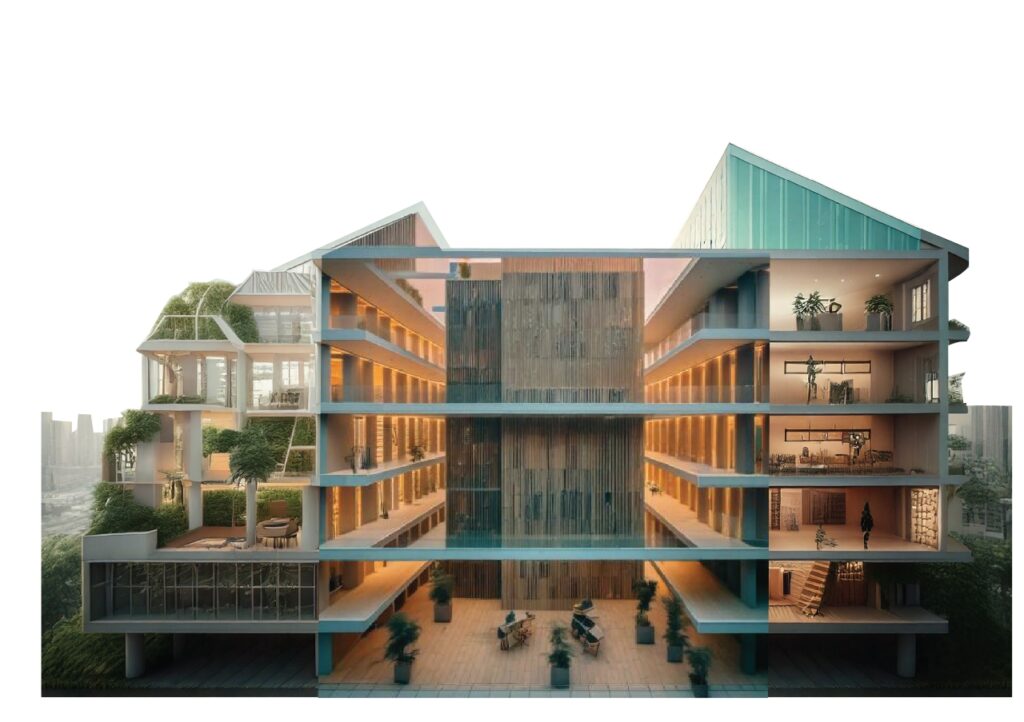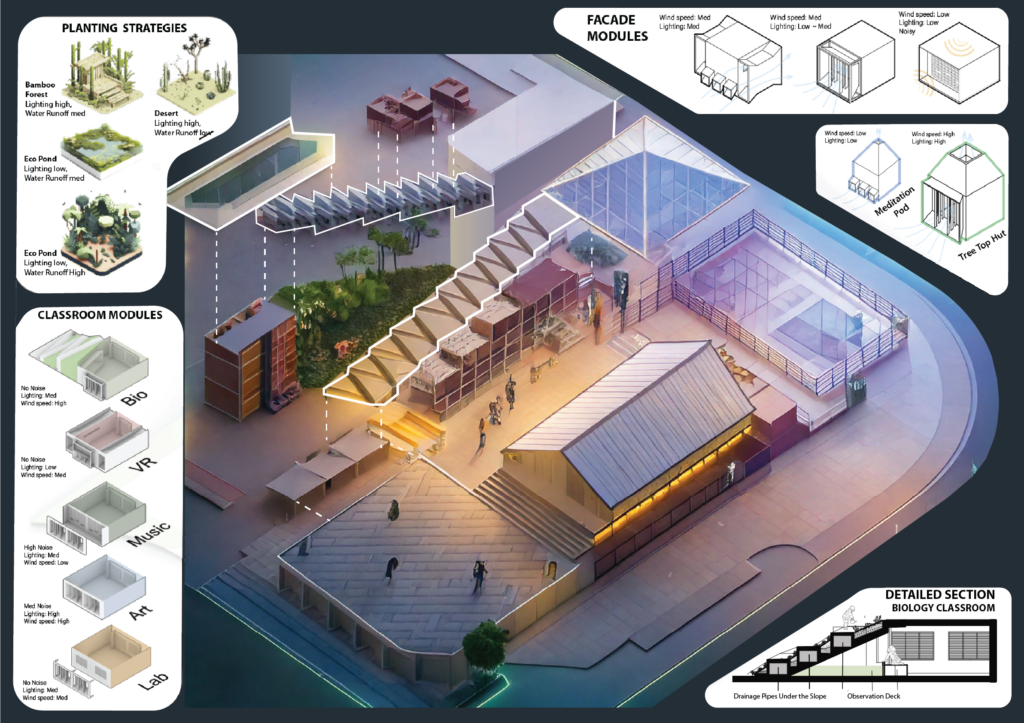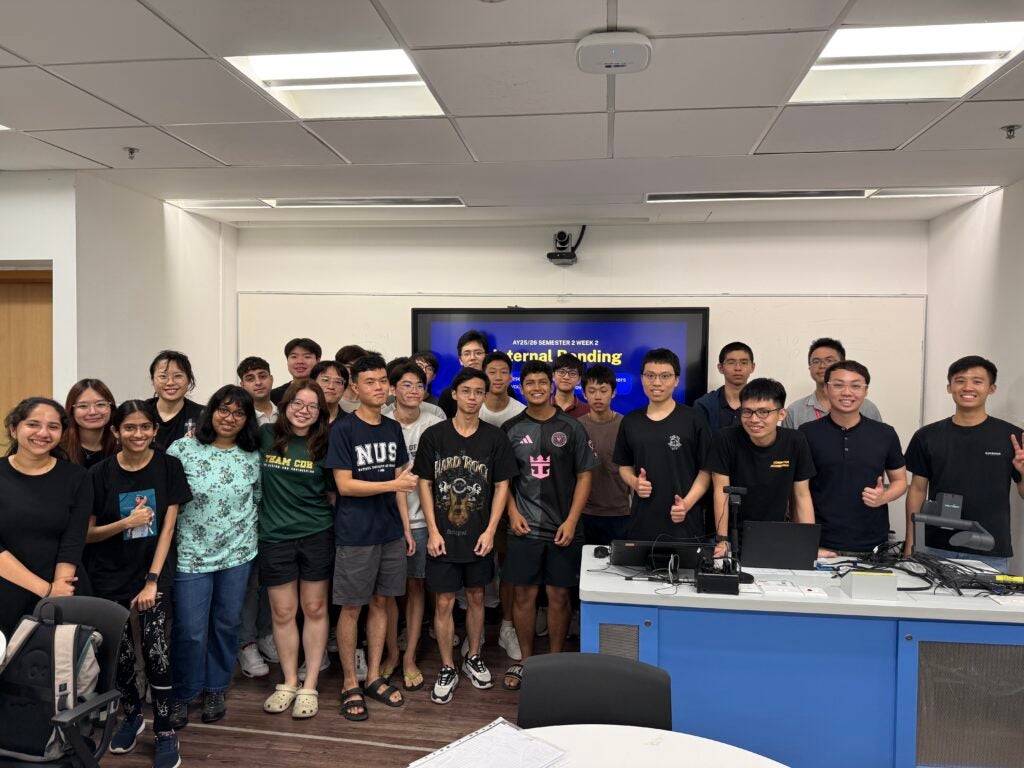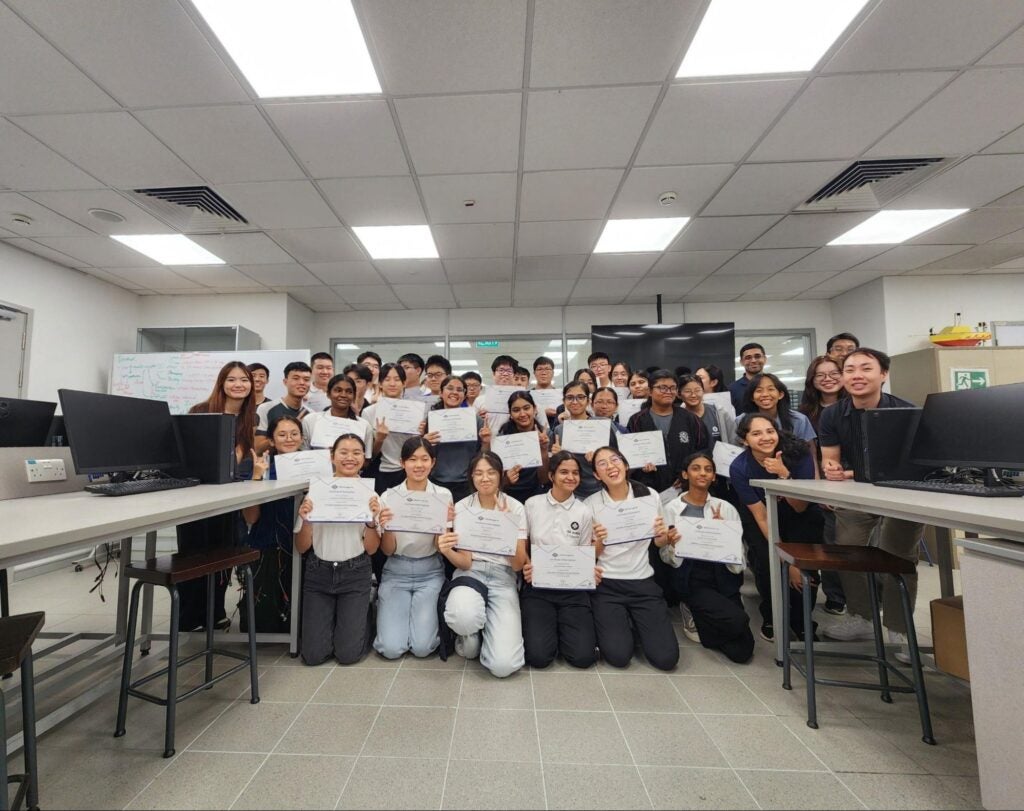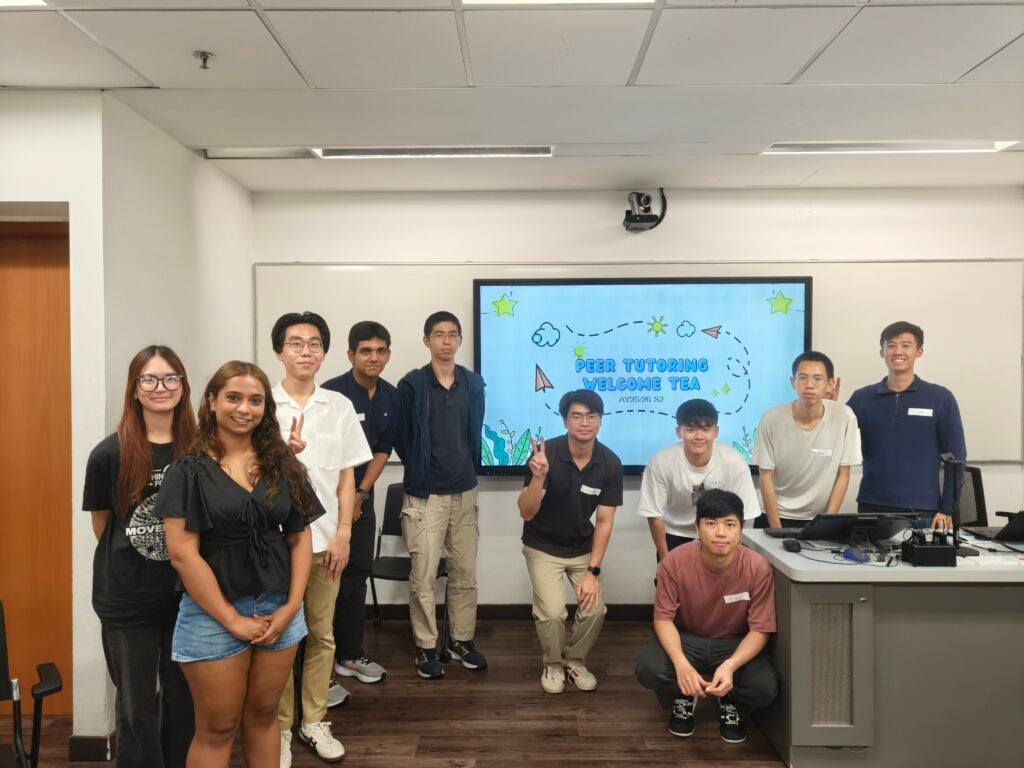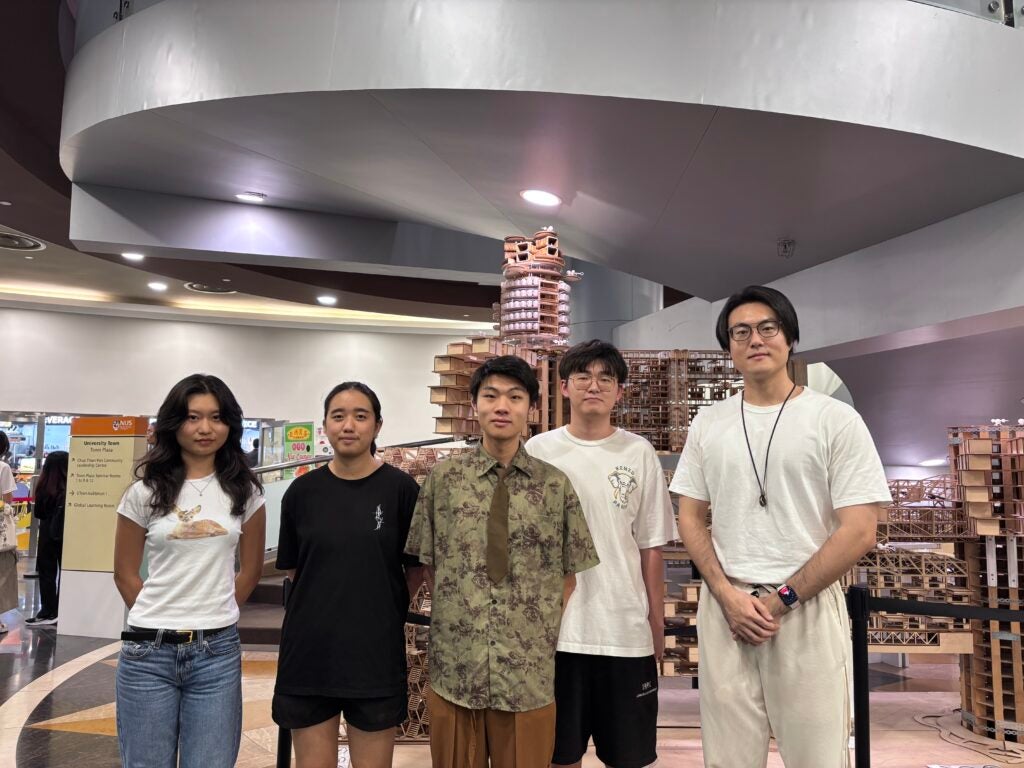
A team of students from the National University of Singapore (NUS) has achieved outstanding success at the HOME International Building Design Competition (IBDC) 2024. Electrical Engineering (EE) Year 4 student, Mr. Wan Jiacheng, and Computer Engineering (CEG) Year 4 student, Mr. Wang Silang, alongside their interdisciplinary team, secured 3rd place with their forward-thinking project, “Augmented Rosyth – A Community-Farm Learning Complex.”
Their project envisions a future educational environment where campuses evolve into hybrid learning spaces that emphasize flexibility, personalization, and well-being. As remote learning gains traction with advancements in augmented reality (AR), virtual reality (VR), and smart-glasses technologies, their design proposes a mixed-use campus featuring expansive green spaces, meditation rooftops, and tree-top huts. These elements aim to foster a balanced integration of academic learning and community engagement. The project reimagines traditional educational settings as dynamic, multi-functional spaces that cater to both students and the broader community.
Silang was motivated to participate in the competition due to his keen interest in interdisciplinary learning. Although majoring in Computer Engineering, he has actively explored psychology, design, and urban planning, supplementing his studies with courses such as NM2209, DTK1000, RVSS1001, and CD2501. Despite the perception that engineering students may not typically favor courses like DTK1000 and CD2501, he found them to be among the most enriching and creative experiences at NUS, complementing his programming expertise and expanding his approach to engineering problem-solving.
His research internship at Synteraction (formerly NUS-HCI) Lab on AR smart glasses, as well as his engagement in entrepreneurship-oriented workshops through the NOC-Silicon Valley program, reinforced his appreciation for interdisciplinary applications of computing and engineering. Together with his architecture collaborator, Mr. Huang Zitao, he saw the IBDC competition as an opportunity to explore the convergence of technology and architectural design. They assembled a diverse team comprising students from architecture and electrical engineering to develop a novel concept that seamlessly integrates multiple disciplines.
Jiacheng, who transitioned from architecture to electrical engineering, played a crucial role in bridging the gap between these fields, providing insights that enriched the project’s development. His expertise in human-computer interaction (HCI) and AR technologies inspired the project’s vision of a future where AR/VR reshapes education by blending physical and virtual learning environments. The team’s effective collaboration enabled them to successfully meet competition deadlines, despite having only three architecture students—one of the smallest architecture teams among competitors.
Their achievement at the HOME IBDC 2024 competition exemplifies the power of interdisciplinary collaboration and innovation. By merging engineering, computing, and architecture, they have demonstrated how technology-driven designs can redefine the future of education, reinforcing NUS’s commitment to fostering forward-thinking, impactful solutions.
